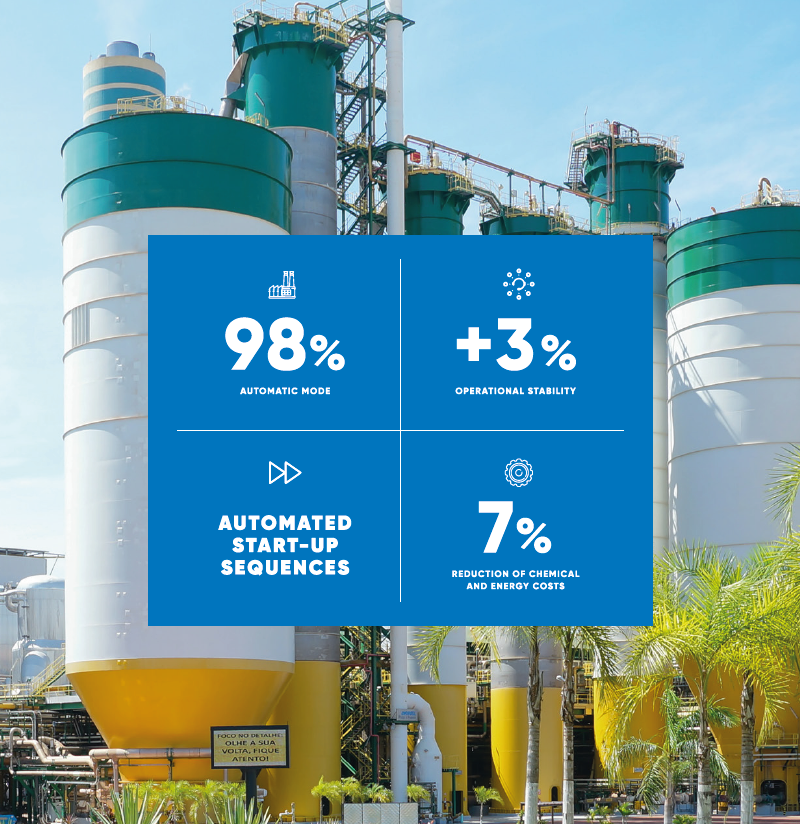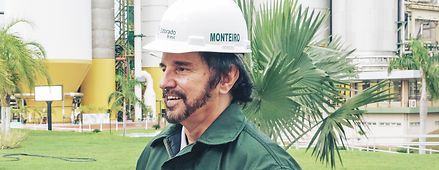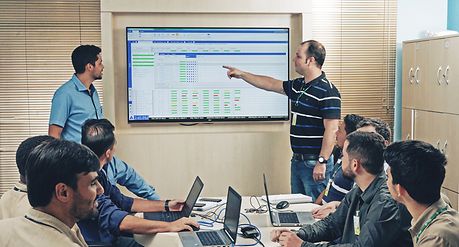“I can tell you this: the results in the first year have been impressive!”
CARLOS MONTEIRO
Industrial Director, Eldorado Celulose
Experiments began with automated operation back in the 1920s or even earlier. The first truly autonomous cars appeared in the 1980s. The development of autonomous mills is moving at a much faster pace thanks to smart sensors and tremendous computing power in small packages that are part of ANDRITZ’s Metris OPP (Optimization of Process Performance).
Metris OPP is a combination of sophisticated software and knowledgeable human experts. This system is aimed at improving production through data mining and control strategies, with the goal of reducing costs and increasing profits. It has been around in various forms for over a decade and is constantly evolving and improving. Metris OPP has been implemented in over 50 plants in 13 countries. Arguably the most impressive Metris OPP project is the autonomous mill at Eldorado Celulose near Três Lagoas (MS), Brazil.
Carlos Monteiro, Eldorado’s Industrial Director, does not care whether it is autonomous or automated. Monteiro is focused on results. “I can tell you this,” he he says, "the results in the first year have been impressive.” An increase in operational efficiency from 89.2 to 93%; variable cost reduction of 7%; 38,000 admt production over the budgeted amount; AND controls in automatic mode 95% of the time.

Increasing operating efficiency by 3.8% may not sound like a tremendous improvement. But in a mill currently producing 1.7 million t/a – an amount that is equivalent to millions of Brazilian real in the end. The fact that Eldorado operates sustainably at 13% above design capacity without any additional capital investments is proof of its efficiency.
But why would a mill already operating in the top tier choose a service like Metris OPP? “We are well managed and have tight cost controls,” says Leonardo Pimenta, Technical Control Manager at Eldorado and in charge of the OPP project. “But we can always improve our position. We focus on every detail to stay ahead of our competitors. Metris OPP is a tool that helps us stay ahead.”
Today, the Eldorado mill runs in automatic mode 97-98% of the time, enabling Eldorado to progress from basic control to “hands off” and even “eyes off” operation. However, operators mostly still start and stop the production process and take over when malfunctions or breakdowns occur, which accounts for the remaining 2-3% of control tasks.
For the rest of their shift, operators can safely turn their attention away from mundane control tasks. “By running in auto, we can reassign operators to more highly leveraged tasks,“ Pimenta says. “If you think about it, even the best operator in the world can’t be alert and on duty 24/7/365.
CARLOS MONTEIRO
Industrial Director, Eldorado Celulose
According to Monteiro, Metris OPP has made a “big difference” in Eldorado’s performance. “We have achieved excellent results in just a short time,” he says. “Every loop in APC makes us money. Selfishly, I would prefer if no other pulp mills were to investigate Metris OPP. But even if there are some who do, we intend to keep pushing and to stay ahead.”
Leonardo Pimenta, Technical Control Manager, meets with the OPP team to discuss progress. The team consists of Eldorado process engineers, reliability engineers, and ANDRITZ OPP analysts working side-by-side.


